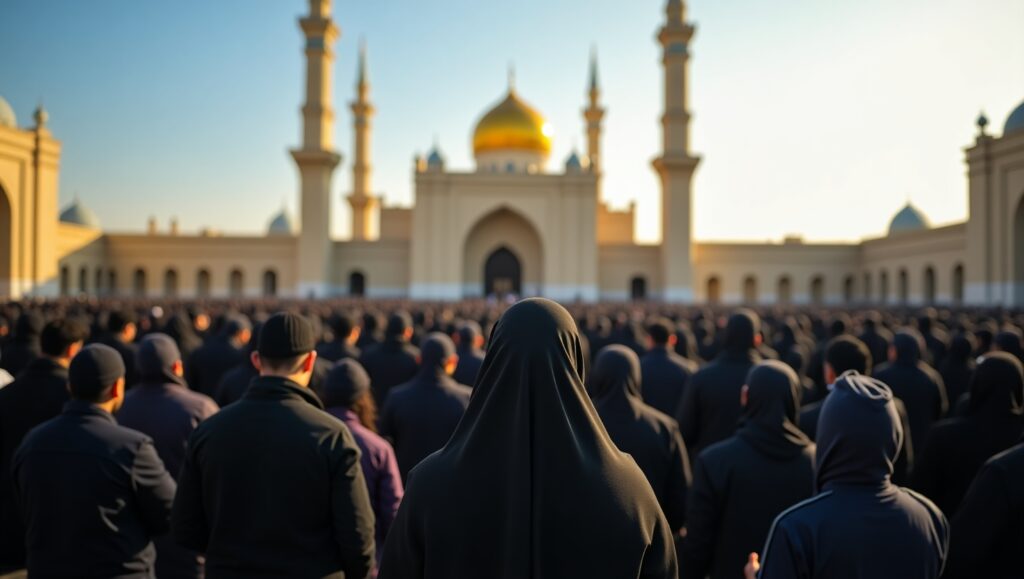Moula Abbas: The Embodiment of Loyalty and Bravery in Karbala
In the annals of Islamic history, few names shine with as much brilliance and unwavering devotion as that of Moula Abbas (Hazrat Abbas ibn Ali). Revered by millions, his legacy is one of unshakable loyalty, unmatched courage, and spiritual nobility. As the brother of Imam Hussain (AS) and the son of Imam Ali (AS), Hazrat Abbas stood at the heart of one of Islam’s most defining moments—the Battle of Karbala. Here, on the scorching sands of Iraq, he earned the eternal title of the “Flag Bearer of Karbala,” sacrificing everything for the cause of truth and justice.
To understand the full spiritual and historical context of Karbala, read our detailed article on Karbala: Thyou can just e Eternal Stand for Justice and Faith.
This article explores the lineage, life, and sacrifice of Moula Abbas, reflecting on how his legacy continues to inspire Shia Muslims and seekers of truth around the world.
Who Was Hazrat Abbas ibn Ali?
Hazrat Abbas ibn Ali was born on 4th Shaban, 26 AH (approximately 647 CE) in Medina. He was the son of Imam Ali ibn Abi Talib (AS) and Ummul Banin (SA), a woman chosen by Imam Ali for her noble lineage and piety, with the hope that she would bear sons who would support Imam Hussain (AS).
From an early age, Abbas exhibited signs of exceptional strength, intelligence, and devotion. He was raised in the spiritual company of his father Imam Ali, and later under the guidance of his brothers Imam Hassan (AS) and Imam Hussain (AS). Among all, his attachment to Imam Hussain was profound and absolute.
Known as the “Moon of the Hashemite family” (Qamar Bani Hashim), Moula Abbas was both striking in appearance and noble in character. He embodied humility, piety, and valor. His life was not defined by mere martial prowess, but by his commitment to divine values, his faith, and the family of the Prophet (PBUH).
The Role of Moula Abbas in the Battle of Karbala
In the year 61 AH, during the tragic events of the Battle of Karbala, Moula Abbas took on a critical and sacred role. As the flag-bearer of Imam Hussain’s camp, he was a beacon of morale and leadership. His loyalty to Imam Hussain was unwavering, and his mission was clear—to protect the household of the Prophet (PBUH) and uphold the message of Islam.
One of the most heart-rending moments of Karbala is the episode where Moula Abbas attempted to fetch water for the thirsty children, especially Bibi Sakina (AS). Breaking through enemy lines, he reached the Euphrates River. Despite the agonizing thirst he himself endured, he refused to drink even a drop, determined to deliver water to the tents first. As he returned, water-filled in a leather bag, he was ambushed. His arms were severed in battle, yet he pressed on. Ultimately, he was struck on the head and fell, calling for his brother Imam Hussain for the final time.
His martyrdom was not just a physical loss—it was an emotional and symbolic shattering. Imam Hussain’s tears at the sight of Abbas’s broken body conveyed the depth of their bond and the gravity of his sacrifice.
The Symbolism of Loyalty and Sacrifice
Moula Abbas is not remembered merely as a warrior but as the epitome of loyalty and sacrifice. His refusal to drink water without first fulfilling his mission exemplifies the spiritual height of his character.
In Shia Islam, Moula Abbas is often referred to as “Bab al-Hawaij” (the door to fulfilling needs). Believers seek his intercession in times of distress, inspired by his readiness to serve others even in the most extreme circumstances. His life teaches the meaning of selflessness and unwavering faith.
The martyrdom of Moula Abbas also symbolizes the distinction between honor and victory. Though he fell in battle, he triumphed in moral and spiritual realms, leaving a legacy that continues to ignite the hearts of millions.
Reverence for Hazrat Abbas in Shia Islam
The love and reverence Shia Muslims hold for Moula Abbas are immense. His shrine in Karbala, situated near the shrine of Imam Hussain, is a place of profound spiritual significance. Pilgrims from across the world visit his shrine during Ashura, Arbaeen, and throughout the year, seeking blessings and spiritual solace.
Duas and Ziyarat texts often invoke his titles—Bab al-Hawaij, Alamdar (Flag Bearer), Qamar Bani Hashim. These honorifics reflect his revered place in the spiritual consciousness of Shia Islam.
His example is often cited in sermons and religious discussions to illustrate the ideal qualities of loyalty, courage, humility, and faith in divine justice. Generations of Shia youth grow up admiring Moula Abbas, aspiring to emulate his character.
Moula Abbas in Poetry, Art, and Popular Devotion
The legacy of Moula Abbas has been immortalized in the art, poetry, and devotional practices of the Shia world. Marsiyas and nohas often recount the tragic moment of his martyrdom, stirring deep emotional responses from listeners.
His alam (standard/flag) is carried in mourning processions during Muharram as a symbol of his steadfastness. In many regions, elaborate Taziyas (replicas of mausoleums) include representations of Moula Abbas’s shrine and his water-carrying mission.
Artists and calligraphers have also paid tribute to him, creating timeless pieces that adorn homes, mosques, and Imambargahs. His stories are told to children and adults alike, embedding his values deeply in Shia identity.
Moula Abbas — The Flag-Bearer of Eternal Devotion
Moula Abbas stands as an enduring symbol of valor, devotion, and spiritual nobility. His actions at Karbala were not just acts of heroism; they were manifestations of divine love and unwavering commitment to truth.
To this day, his name inspires awe and tears, courage and reflection. For the followers of Ahlul Bayt (AS), he is a role model, a guardian, and a source of hope.
May we continue to honor the legacy of Moula Abbas by embodying his virtues in our lives. For more on Karbala and the noble companions of Imam Hussain, explore the rich collection of articles on ZiaratOnline.com.


